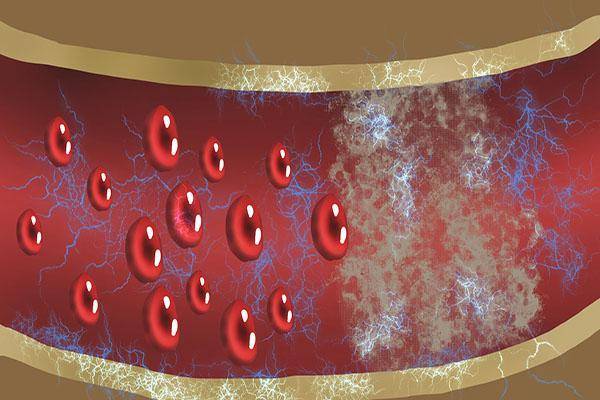Our body needs to transport various nutrients and oxygen to various organs through blood vessels. Only when the blood vessels are unobstructed can the body function normally. However, if there is a blockage in the blood vessels, various health problems may arise. The organs do not receive oxygen and blood supply, and without timely improvement, it may trigger dangerous diseases such as heart attack and stroke.
We should know that what blocks the blood vessels is not the metabolic waste inside the body but the cholesterol in the blood. When the concentration of cholesterol in the blood increases, cholesterol may adsorb on the blood vessel walls. Prolonged exposure can lead to blockages in the blood vessels. The increase in cholesterol levels is closely related to our diet, meaning that blood vessels are what we “clog” with our eating habits.
Blood vessels become clogged due to diet choices. Doctors have listed items to avoid consuming as much as possible:
1. Almonds
Although almonds are commonly eaten, consuming too many can easily lead to blood vessel blockages as they are very high in calories. Even though the body receives sufficient energy intake, it can increase cholesterol levels internally, leading to elevated blood lipids. This can easily form plaques in the blood vessels, increasing the risk of blockages. Therefore, it is best to consume almonds in moderation to prevent blood vessel blockages.
2. Low-quality rapeseed oil
Many people often purchase cheap rapeseed oil from unscrupulous sources to save money. Usually, these oils are of low quality and contain harmful substances. Prolonged consumption can lead to increased blood lipids and blood pressure, raising the chances of blood vessel blockages and ruptures, posing a threat to overall health. Therefore, avoiding cheap oils is crucial when buying and consuming cooking oils.
3. High-fat foods
Many people enjoy consuming high-fat foods. However, as the body’s ability to metabolize fat decreases with age, fat accumulates in the body, raising blood lipid levels and increasing the viscosity of the blood, leading to a higher possibility of blood vessel blockages. Additionally, lack of exercise contributes to weight gain and obesity, which are culprits in causing blood vessel blockages.
To protect the blood vessels, consider the following:
Drink plenty of water
Most of the body’s blood is composed of water. Many people only drink water when thirsty, but by the time the thirst sensation arises, the body is already slightly dehydrated, increasing the risk of blood vessel blockages. Drinking more water daily can speed up metabolism, aiding in fat removal from the body and effectively preventing blood vessel blockages.
Exercise regularly
Exercise, like drinking water, accelerates metabolism. Moreover, it enhances the elasticity of blood vessels and prevents hardening and fibrosis of blood vessels. Hence, participating in aerobic exercises like brisk walking, swimming, and cycling is beneficial not only for blood vessels but also for overall health.
Doctors emphasize that blood vessel blockages are closely related to our daily dietary habits. To reduce the occurrence of blockages, avoid high-fat and greasy foods. If the condition of blood vessel blockages persists, various cardiovascular issues may arise, posing a threat to life. Protecting blood vessels is tantamount to protecting our lives.


